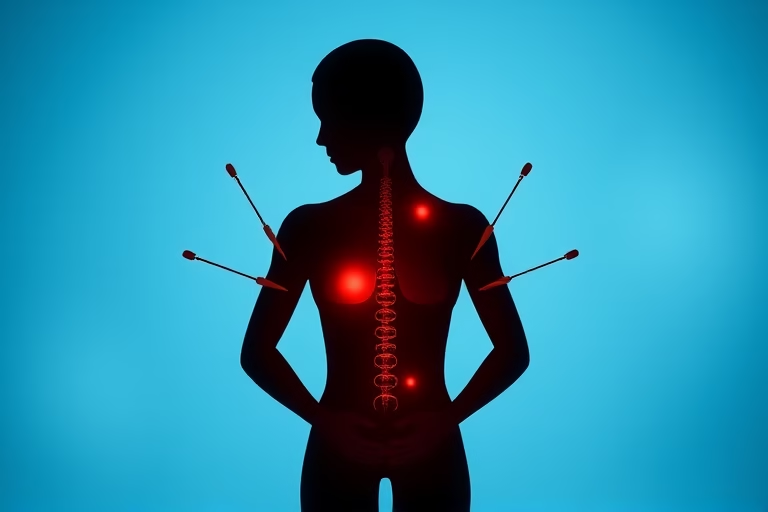IVF acupuncture is gaining attention as a complementary treatment option for couples undergoing in vitro fertilization. This holistic approach combines traditional Chinese medicine with modern reproductive techniques, aiming to enhance fertility, reduce stress, and improve overall well-being. By using fine needles to stimulate specific points on the body, acupuncture may help address various issues related to reproductive health. This method has been associated with improved blood flow to the reproductive organs, hormonal balance, and relaxation. In essence, IVF acupuncture serves to support individuals and couples on their journey to parenthood, potentially increasing the chances of a successful IVF outcome.
What is IVF Acupuncture?
To understand IVF acupuncture, it is essential to know both IVF and acupuncture individually. In vitro fertilization (IVF) is a medical procedure that involves fertilizing an egg with sperm in a laboratory setting before implanting the embryo back into the uterus. This technique is typically used when other fertility treatments have not been successful or when there are genetic concerns.
On the other hand, acupuncture is a practice rooted in Chinese medicine, where fine needles are inserted into specific points on the body to promote energy flow and enhance healing. The combination of these two therapies aims to not only increase the chances of successful implantation but also to reduce stress associated with the IVF process.
Research suggests that acupuncture may improve blood flow to the ovaries and uterus, regulate hormones, and decrease anxiety levels, all of which are vital for successful conception. As more couples seek less invasive options to complement their IVF treatments, the demand for IVF acupuncture continues to grow.
How Does IVF Acupuncture Work?
The mechanism behind IVF acupuncture largely revolves around its ability to influence the body’s energy pathways, known as meridians, as well as its effects on the nervous and endocrine systems. By inserting needles at specific acupuncture points, practitioners aim to restore balance and promote optimal function within these systems.
This treatment is thought to improve reproductive health by:
Many studies have shown that patients who undergo acupuncture in conjunction with their IVF cycles may see a higher success rate compared to those who do not use acupuncture as part of their treatment. This therapy can be incorporated at various stages of the IVF process, from pre-treatment to embryo transfer.
Benefits of IVF Acupuncture
IVF acupuncture offers numerous benefits for individuals undergoing fertility treatments. A major advantage is the improvement in overall well-being during a stressful time. Acupuncture can lead to:
This holistic approach can promote a healthier mental state, making patients feel more empowered and in control of their fertility journey. Furthermore, reduced stress levels can create a more favorable hormonal environment for conception to occur.
Safety and Side Effects of IVF Acupuncture
One crucial aspect of any medical treatment is its safety profile. IVF acupuncture is generally considered safe when performed by a qualified acupuncturist. Most individuals experience minimal discomfort, and any potential side effects are typically mild. Common side effects can include:
It is vital for patients to consult their healthcare provider before starting acupuncture, especially if they are undergoing IVF, to ensure that this therapy is appropriate for their specific needs and conditions.
Integrating IVF Acupuncture with Conventional Treatments
Combining IVF acupuncture with conventional fertility treatments represents a growing trend in reproductive health. Many fertility clinics are increasingly open to incorporating these holistic methods into their treatment protocols due to the promising results from various studies.
Patients are encouraged to discuss their interest in acupuncture with their fertility specialists. Working together with an acupuncturist who understands the intricacies of fertility is essential. This collaboration can enhance the effectiveness of both treatments, leading to improved outcomes.
Choosing an IVF Acupuncture Practitioner
Finding a skilled and certified acupuncturist is crucial for experiencing the full benefits of IVF acupuncture. Patients should look for practitioners who specialize in reproductive health and are familiar with the IVF process. Here are some tips to help find the right acupuncturist:
Establishing a good rapport and open communication is vital for a successful therapy experience. Ensuring that the acupuncturist understands the IVF journey will help tailor treatments effectively.
Success Rates of IVF Acupuncture
Research on IVF acupuncture indicates a potential increase in the success rates of IVF cycles among patients who receive acupuncture treatments. Several studies support the notion that acupuncture can:
These benefits may relate to improved blood flow and hormonal balance that acupuncture promotes. While individual responses may vary, many couples have found acupuncture to be a valuable addition to their IVF journey.
Final Thoughts
In summary, IVF acupuncture presents a complementary approach to traditional fertility treatments. By enhancing mental well-being, reducing stress, and promoting improved reproductive health through acupuncture, patients can better navigate the challenging landscape of IVF. This holistic therapy holds promise in fostering a supportive environment for conception, potentially leading to higher success rates in IVF.
Patients must work closely with their healthcare providers to tailor their treatments effectively, ensuring that both conventional and alternative therapies are aligned in the pursuit of parenthood.
Frequently Asked Questions
IVF acupuncture combines traditional acupuncture techniques with in vitro fertilization to enhance fertility and improve success rates.
Acupuncture improves blood flow to the reproductive organs, balances hormones, and reduces stress, all of which are crucial for successful conception.
Generally, IVF acupuncture is considered safe when performed by a licensed practitioner. Discuss with your healthcare provider prior to starting any treatments.
The number of sessions can vary; however, many practitioners recommend starting acupuncture several weeks before the IVF cycle begins.
Yes, acupuncture can be integrated with conventional IVF treatments. Discuss your treatment plan with both your fertility specialist and acupuncturist for a cohesive approach.
Further Reading
What Type of Psychotherapy Is Best for Anxiety?







